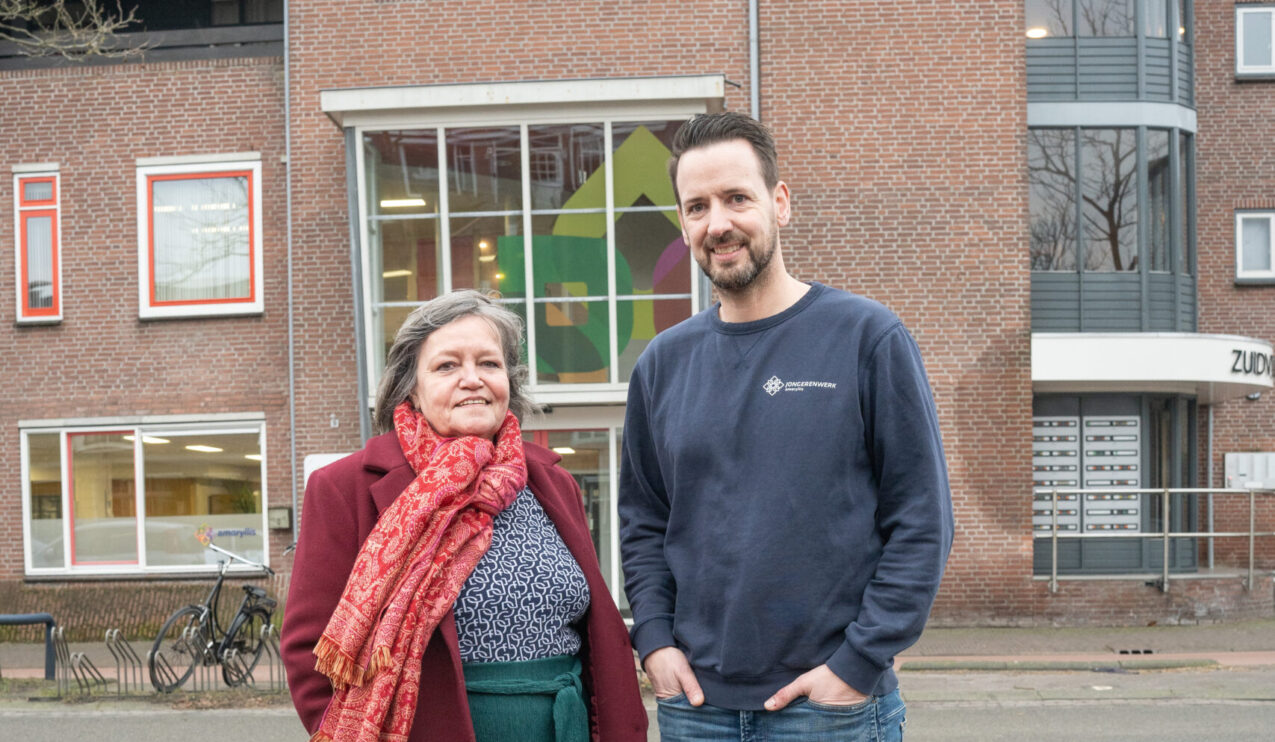Caring for someone is not carefree
One in four young people under 24 is a carer. They care for or worry about someone close to them. For example, their father, mother or brother. Many young people also unintentionally receive (too) little attention from their parents, because someone else in the family requires a lot of care due to an illness, disorder or condition.
"Then you see the roles turn," says Eveline. From Amaryllis, she supports young carers. "The child takes on the caring role. While that child should be carefree. It should be busy with school, going out with friends and playing. Caring for someone is not carefree. It can take a lot of energy and cause stress."
Consciousness
Children who grow up as carers often do not realise they are carers. "Because they grow up like that, they don't see it as something special," Eveline explains. "They don't see it as a problem and so they are not likely to seek help. But it is not normal. I have been a young carer myself. Back then it didn't have a name, but for me it would have made a big difference if more had been known." Many young informal carers also often take on the caring role later on and are more likely to cancel themselves out. This can all cause problems for themselves too, such as burnout. This is why Eveline and her colleagues are especially committed to prevention.
Why is a student always late? Why is it that he cannot concentrate?
Eveline is working with youth workers at Amaryllis to raise awareness of young carers. "Our youth workers are at almost all secondary schools and mbo's in the municipality of Leeuwarden," says Alef, youth worker at Amaryllis. "By making teachers aware of what is going on with so many young people, they can recognise it. Then they can respond to it. Why is a student always late? How come he can't concentrate? Maybe the home situation requires too much energy. If the teacher is aware of this, they can take it into account and offer a listening ear. A pat on the back can be enough. With that, you indicate that you see someone." In addition, youth workers and Eveline are on the road through the municipality a lot, so they are visible and approachable for young people
Cooperation with schools
"There is a lot organised for people receiving care. Different groups and foundations that organise outings. We, on the contrary, dedicate ourselves to those who provide care," says Eveline. "For example, a theatre play about young carers was made for families and professionals. We also organise film or pizza evenings. We let young people forget for a while that they are carers. It's important that they don't think about caring for a while, but have young people around them who understand the situation and understand each other in one word."
Tips for young carers
1 Talk to someone you trust
It can be really nice to get your heart out.
2 Find or request information about the disease or disability
That can make everything much clearer.
3 Ask for help
Does caregiving take too much time? Look for (professional) help together with your parents. For example, contact team Mantelzorg or a youth worker from Amaryllis.
4 Take good care of yourself
You can help another person better if you take good care of yourself. Relax and do social things with others.
5 Meet other young family carers
With them you can share experiences. You really are not alone! Join an outing of Amaryllis, for example.
Tips for professionals
1 (Recognise) the young informal carer
Ask how he/she is doing instead of the carer.
2 Be alert
Young people facing 'adult' problems are often not yet able to see the impact of this on their own lives. Help them do this.
3 Build a relationship
Young people do not tell directly what concerns them. This requires trust.
4 Don't go solving or taking over
Ask what the young person needs. Often a listening ear is already nice.
5 Informing and/or referring
Young people enjoy getting information about their loved one's illness, disability or disorder and the support options available.
6 Ask for advice
Are you worried about the young person? Discuss this with them, their parents and/or your colleagues. If necessary, seek advice from other organisations.



